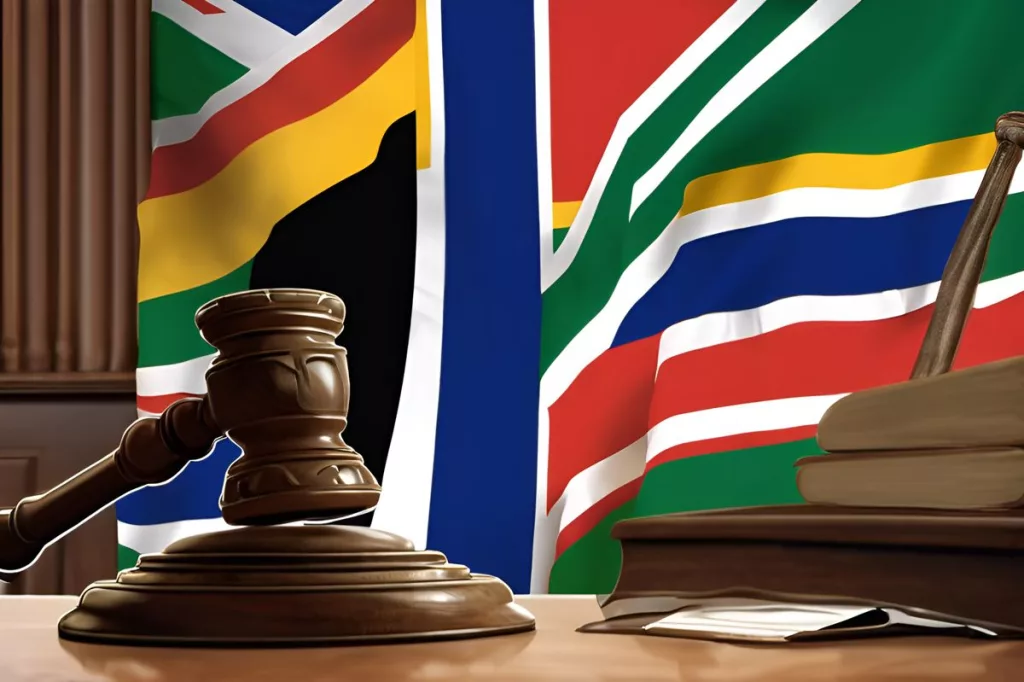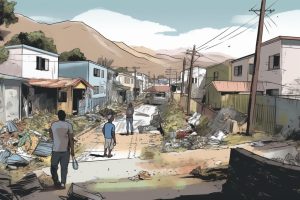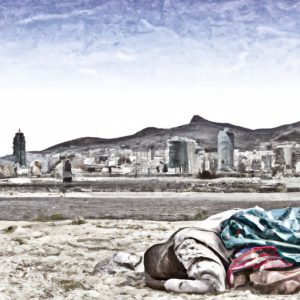South Africa is facing a crisis as it tries to evict hundreds of foreign nationals who refuse to reintegrate into local societies or return to their home countries. Home Affairs Minister Leon Schreiber has called for innovative solutions to accelerate the asylum application process and resolve the situation. However, the lack of refugee facilities and an overwhelmed asylum application system are contributing to the humanitarian drama in Cape Town and the desperate situation of the refugees caught between a rock and a hard place.
The Western Cape High Court has approved the eviction of illegal settlements in Cape Town’s CBD, including Buitengracht Street and Foregate Square. The City plans to invest over R220 million to expand and manage its Safe Space transitional shelters beyond the existing 770 beds across the CBD, Bellville, and Durbanville facilities as part of its continuous battle against homelessness. Safe Spaces provide transitional accommodation and social support initiatives to help individuals transition off the streets.
Phat Joe, a wellknown media personality, was recently evicted from his luxurious Sea Point apartment due to unpaid rent totaling over half a million rands. Sea Point is a highly soughtafter neighborhood due to its proximity to the beach and mountains, and apartments there can fetch monthly rents ranging from R10,000 to R100,000. Despite the eviction, Phat Joe’s professional journey remains strong, as he holds top positions at media and marketing companies in Cape Town.
Residents of Bromwell Street in Cape Town are fighting eviction from their longterm homes, highlighting the ongoing challenges faced by South Africa’s underprivileged urban population. The legal battle brings to light the discord between existing housing policies and ground realities, perpetuating spatial apartheid and pushing evicted individuals towards the city periphery. The community is anxiously awaiting a decision that will allow them to maintain their homes and secure their livelihoods and futures.
In Cape Town, the eviction of the homeless from areas like Culemborg is met with a multifaceted approach aimed at rehabilitation and reintegration. The Safe Spaces program provides shelter and access to services like mental health, substance abuse treatment, and employment opportunities. The city’s commitment to addressing homelessness is reflected in its expansion of transitional shelters, increased bed capacity at Haven Night Shelter, and investment in NGO grants. The approach is a compassionate response to homelessness, offering a path to dignity and selfreliance.
Welverdiend Farm, located in Vredendal on the West Coast, is the home to many generations of families who are now battling for ownership and heritage against the current proprietor, Truter Lutz. The Department of Agriculture has proposed purchasing the part of the farm where the tenants live to guarantee their tenancy, but Mr. Lutz declined. The Surplus People Project supports the farm inhabitants, stressing the negative impact that relocation would have on their way of life, while the property owner’s legal counsel counters emotional considerations by asserting that the land was acquired free of any land claims or burdens. The outcome of the legal battle will have farreaching consequences for the lives of the inhabitants and their connection to the land.
The Central Line relocation process has become a source of controversy recently due to misinformation from the new Transport Minister Sindisiwe Chikunga. During her speech in the National Assembly on May 16th, 2023, she wrongly claimed that the City of Cape Town is responsible for the project. Her statement led to confusion and raised concerns among the public.
The contentious issue of land restitution in South Africa continues to be challenging, particularly in cases such as District Six in Cape Town. This oncethriving community was forcefully evacuated by the apartheid government in the 1960s and 1970s, leaving the land vacant for decades.
A recent development in Cape Town has shed light on the ongoing struggle of vulnerable individuals experiencing homelessness in the City. The City of Cape Town had applied to have a group of homeless individuals evicted from several public sites, including locations in the city center. However, the eviction hearing was delayed after the group, represented by the SocioEconomic Rights Institute of South Africa (SERI), filed a notice of intention to oppose the eviction. While disappointing for the City, the delay has opened up an opportunity for a larger conversation about the root causes of homelessness in Cape Town.









